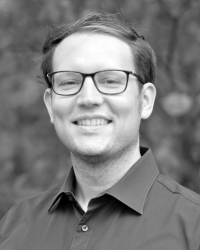Hauptinhalt
Topinformationen
Structure and Content
See also: Overview of the curriculum in German
The Master's Program in Clinical Psychology usually takes four semesters to complete. The curriculum consists of a total of 9 modules, in which thematically or methodically interrelated courses are bundled.
The modules can be divided into three required areas:
- Methodological requirements
- Clinical applications
- Further requirements
This corresponds to a total of 120 credits (CP), of which 75 credits are attributable to the modules accompanying the program (including the minor subject which should at least comprise 12 credits), 15 credits should be gained from the work-oriented internship and 30 credits from the master's thesis. The average study volume per semester is 30 credit points for the regular study period.
The ideal curriculum specifies the position and the extentof the modules (in credit points) within a regular study period of 4 semesters .
In the following, the three requirements of the Master's Degree in Clinical Psychology are presented:
1. Methodological requirements
The methodological requirements include two modules, one comprising of two lectures, the other a lecture and an exercise course:
- The first module Research Methods provides students with theoretical and practical requirements for the evaluation of empirical investigations by means of multivariate procedures. In addition, students are taught how to plan, implement and measure evaluations of interventions.
- The second module Diagnostics and Evaluation incorporates the evaluation of programs and processes of scaling, under consideration of models of test theory.
2. Clinical Applied Subjects
The clinical requirements consist of four modules:
- In the module Biopsychology and Psychosomatics/Behavioral Medicine the neurobiological basis of psychological disorders and somatic diseases are imparted. In addition the importance of the experience and behavior in the formation, maintenance and development of somatic diseases are addressed.
- In the second module, Psychotherapy and Counseling, students acquire in-depth knowledge of the most important clinical-psychological intervention methods and learn the methodical sequence of a selection of therapeutic techniques.
- The module Pathopsychology and Diagnostics covers the development of case concepts for the treatment of mental disorders by means of scientific-diagnostic procedures.
- In the module Research Project and Colloquium ("Studienprojekt und Kolloquium" in German), students learn – under supervision of an instructor - how to plan projects in one of the clinical focus areas. They are taught to work as independently as possible and according to scientific standards, to work out the necessary professional and interdisciplinary foundations and methods, to conduct the project, evaluate it as well as write a project report and present it in the colloquium.
3. Additional requirements
Additional requirements include the minor subject, the internship and the master's thesis.
The minor subject can be chosen by students from the following subject areas according to their own needs and interests:
- Applied Systems Science
- Introduction to Migration Research: Historical and Sociological Foundations
- Genetics
- Marketing
- Human-Computer Interaction
- Neurobiology
- Neurobiological Psychology
- Organization, Management and Intercultural Management
- Philosophy of Mind and Cognition
- Psychomotor and Health Promotion through Physical Activity
- Psychopathology and Mental Hygiene
You can find details on the respective minors here.
The internship (module Career-Oriented Internship) provides Master students with the possibility to apply specific subject matter skills as well as practical skills to new tasks while in a professional setting. In addition, by establishing a professional network, they create a basis for their future careers.
In addition, the students are offered courses in order to get involved in more practical facets like the Practical Experience Series and the Practical Experience Workshop with lectures and workshops by professional practitioners on various topics.
The students also have the possibility to extend their transcript of records by as many additional offers as they like in the area of Educational Psychology as well as basic courses of other programs and language courses.
In the master's thesis students should show that they are able to independently process psychological questioning conceptually and methodologically according to scientific standards using psychological methods and to present them in a coherent form in writing.
For further questions regarding the structure and content of the program, please contact the Academic Program Manager:
Christopher Klanke, Dipl.-Psych.

Tel.: +49 541 969-7707
christopher.klanke@uni-osnabrueck.de
Raum: 75/209
Institut für Psychologie
Lise-Meitner-Straße 3
49076 Osnabrück
Sprechzeiten: nach Email-Vereinbarung


